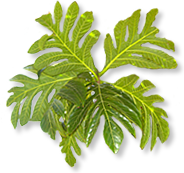Tropical Production Systems
TPSS 300
Faculty:
Kent Kobayashi
Goals:
This course is designed as a bridge between the introductory TPSS 200 course and the three upper division courses in the production of specific crops (TPSS 401, 402, 403). The course objectives include:
Be familiar with different crop production systems and crop management systems.
Be aware of how environmental factors and crop manipulations influence crop growth and development in different production systems.
Be able to identify problems in production and apply an organized approach to their solution.
Improve skills in critical thinking, writing, reading, speaking, and problem solving.
Skills and knowledge to be acquired:
Will understand the range of topics encompassed within TPSS, including both natural and human-managed systems, and their general application to the environment and society. Will demonstrate the ability to critically evaluate and apply scientific evidence and technical knowledge to issues associated with the environment, agriculture, and society in a dynamic world. Demonstrate proficiency in oral and written communication for both professional and lay audiences.
Description:
Comparisons and contrasts of crop management systems, techniques, and technologies in protected and open field production of tropical crops.
Computer skills to be acquired:
This is a Bring Your Own Device course--laptop, tablet, or smartphone. Internet searches, YouTube videos, computer simulations, and agricultural apps.
Pre-requisites:
TPSS 200 or consent.
Text(s):
There is no required textbook. This course uses a variety of teaching techniques. There are lectures, labs, small group discussions, class discussions, writing assignments, in-class assignments, homework assignments, lab assignments, guest speakers, critiques, oral presentations, field trips, and virtual field trips. This is a Bring Your Own Device (BYOD) course so bring your laptop, tablet, and/or smartphone to class each period. Readings will be from handouts, articles given in class, web sites, and videos.
Films and videos:
YouTube videos.
Guest Speakers:
Guest speakers include graduate students, industry people, an extension agent, and a UHM librarian.
Field Trips:
Field trips to on-campus and off-campus sites. Each student individually will do a virtual field trip assignment in which they choose and visit a commercial nursery/farm, interview the owner, take pictures, and give an oral presentation and submit a written paper on the nursery/farm operation.
Course organization:
This course has two lecture periods and one laboratory period each week. The topics covered include:
Grading:
The final course letter grade, based on a class curve, is determined by the total number of points earned for all assignments, laboratories, final exam, mid-term exams, quizzes, class participation, and attendance. Individual assignments are not given letter grades.
Other:
Students should complete the reading assignments before coming to class. In addition to the reading assignments, students are expected to do additional reading on their own about topics related to those covered in class. These may be from books, scientific articles, websites, videos, etc. These topics may be brought up in class for discussion. It is expected that each student will be actively involved in class discussions and small group discussions. This course uses peer evaluation, that is, students will critique each other's work.


